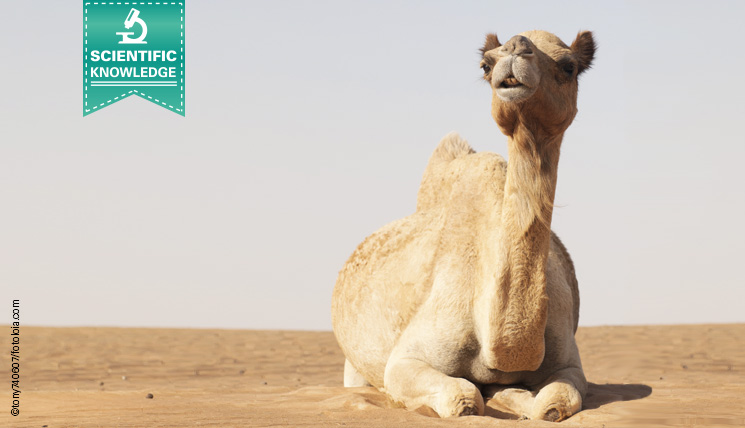In 2012, a new coronavirus was identified in the Middle East causing a respiratory syndrome in humans (Middle East Respiratory Syndrome coronavirus, MERS-CoV). Camels were shown to be a major reservoir for the virus and a potential source for human infections. Although transmission of the virus from animals to humans as well as humans to humans seems to be limited, serious outbreaks of MERS have been reported, predominantly on the Arabian Peninsula and very recently in South Korea.
Results of a previous serological survey suggesting the presence of anti-MERS-CoV antibodies in approx. 10% of camels on the Canary Islands have raised concerns about a spread of the virus. However, epidemiological information was not provided, thus conclusions about the prevalence and epidemiology of the disease could not be drawn. In this study, the results have been reassessed including information about the location, owner, place of birth, sex, age and identification of the tested camels.
170 camels from different farms of the Canary Islands, representing approx. 11% of the total population, were tested for anti-MERS-CoV-antibodies using the EUROIMMUN anti-MERS-CoV ELISA Camel (IgG). 153 animals were born on the Canaries while the rest was imported from Africa. In total, only 7 camels were seropositive for anti-MERS-CoV-antibodies. They were owned by three different farmers on three different islands of the Canaries and all were females imported from Africa before 1995.
The findings suggest that there is no circulation of MERS-CoV in camels on the Canary Islands, thus representing no acute threat to animals or humans. It is assumed that seropositive animals must have had the last contact to the virus in Africa more than 20 years ago, but still reveal specific IgG antibodies due to the high immunogenicity of MERS-CoV. Nevertheless, it could be advisable to surveil the presence of specific anti-MERS-CoV-antibodies and evaluate the situation of the whole European camel population in future studies.

